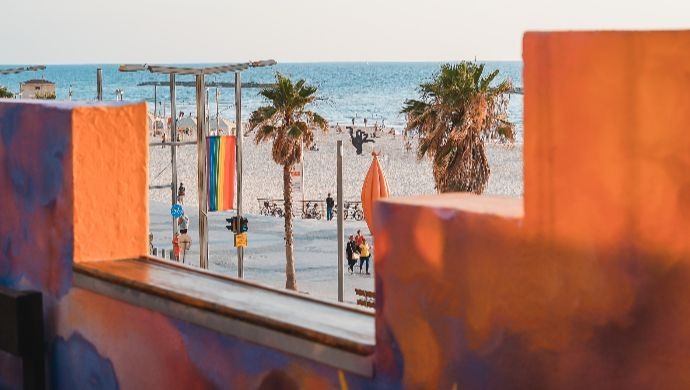Stamford Land Corporation Ltd announced on Sunday, September 9, that the company has filed a writ of summons against Mano Sabnani, who is a minority shareholder with the company. Mano Sabnani serves as the Chairman & CEO at Rafflesia Holdings Pte Ltd,was the Former Chief Executive Officer/ Editor-in-Chief at TODAY and the Former Managing Director at DBS Bank.
The company issued an announcement that legal proceedings against Mr. Sabnani had begun and that the Plaintiffs in the proceedings, which include the company’s directors Ow Chio Kiat, Ow Cheo Guan, Ow Yew Heng, Lim Teck Chai Danny and Mark Anthony James Vaile, are claiming damages from Mr. Sabnani for statements of a defamatory nature that he made on four occasions: the Annual General Meetings on July 2016 and July 2018, a Facebook post dated July 27, 2018 and in a letter to the Business Times (BT) on July 31, 2018.
According to the announcement, Mr. Sabnani issued defamatory statements that were intended to disparage the company’s directors in their profession and business, thereby injuring their reputations, and that these statements said that the directors had “breached their fiduciary duties to Stamford Land” and were “guilty of offences under the Companies Act.”
Furthermore, the directors denied the statement Mr. Sabnani made in his Facebook post and in the letter to (BT), that he “was told that there was water in the toilet and I could quench my thirst there.”
The announcement, written by Lee Li Huang, the Chief Financial Officer and Company Secretary of Stamford Land, ended with a statement that shareholders would be informed of further developments.
According to Mr. Sabnani’s letter to BT on July 31, entitled “Stamford Land board’s high-handed conduct at AGM leaves bitter taste,” he was so “dismayed” by the behavior of the chairman and certain members of Stamford Land Corporation’s general meeting on July 27 of this year that he left while the meeting was still going on. Per Mr. Sabnani, he had been “vilified, bullied and made to feel totally unwelcome as a minority shareholder” just for asking “a few hard questions.”
At the meeting, shareholders were only allowed to ask one question each. Mr. Sabnani claims that he had asked why the company has three Chief Executive Officers and why they had received S$6.5 million from Stamford Land for 2017. He wrote, “The chairman (executive chairman Ow Chio Kiat) alone received at least S$4.75 million, much more than the S$1.77 million paid to the top five management personnel in the company.”
Mr. Sabnani says he did not receive a clear answer to his question.
Awhile later, he also spoke to the assembly concerning the dividend resolution. “The company paid three cents in dividends in 2014 when earnings per share were 3.1 cents and the debt position was much higher. Now, with practically no debt and earnings per share at 6.5 cents, the dividend proposed is just one cent.”
The chairman had answered saying that cash was needed to be conserved for future needs.
Mr. Sabnani questioned the dividend policy, writing to the Business Times, “Due to its poor dividend policy in the last three years, the shares have not performed at all. They traded at 64 cents in 2014 and now languish at 47.5 cents despite the net asset value (NAV) rising from 57 cents in 2014 to 60 cents at end of FY March 2018. The dividend yield at the NAV of 60 cents is only 1.7 per cent versus about 3.5 per cent on the Straits Times Index. The company seems to have no idea of capital management and how it could raise returns for shareholders through higher regular dividends and the likely resultant higher valuation in the market.”
Mr. Sabnani also made a point at the end of his letter, saying that there was not a large attendance at the Chinese Cultural Centre where the meeting was held, and that the attendees were not even given water to drink while the board members drank freely from their water bottles.
He wrote, “I was told there was water in the toilet and I could quench my thirst there. That’s how I felt when I left the meeting: in the water closet!”
On September 4, Benedict Tan, General Counsel for Stamford Land Corporation Ltd also wrote to the Business Times denying the accusations of Mr. Sabnani, and saying that a letter had been written to its shareholders on August 31 and posted on SGXnet in response to the allegations.
Mr. Tan’s letter denied that the number of questions from shareholders was restricted, and said that the management and board of directors did not ask anyone to quench their thirst in the toilet.
He also answered the points Mr. Sabnani raised concerning the declaration of dividends and the renumeration of the company’s CEOs, saying that these “rose in accordance with the formula adopted by the Board following the advice of an independent human resource consultant, which were then reviewed by the independent remuneration committee of the Board, and adopted by the Board (with each of the directors abstaining from voting on his own remuneration); and as explained at the 2018 AGM, the company took into account the potential earnings forecast of the company, the sustainability of the current dividend over the course of the next few years and the resources required for Stamford to undertake any projects for the coming years, when declaring its dividends.”


































